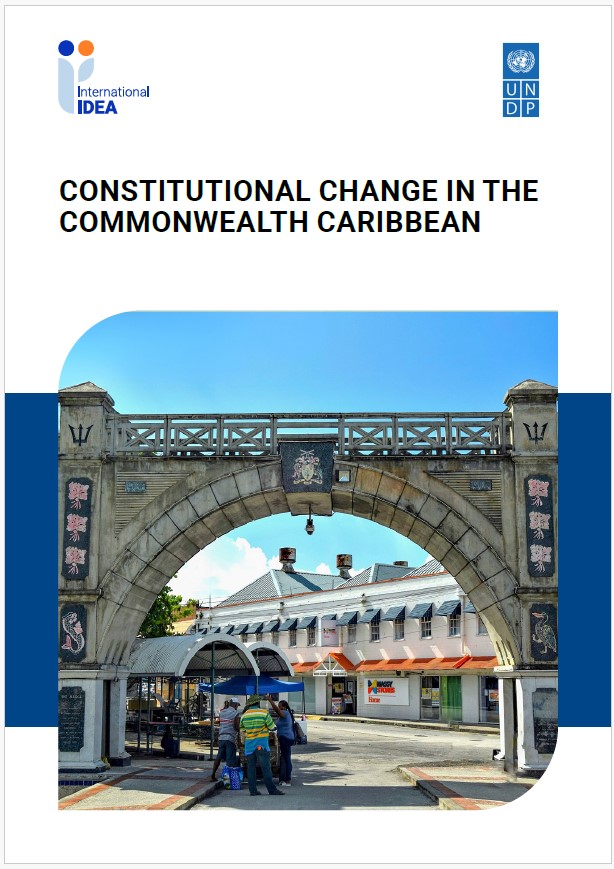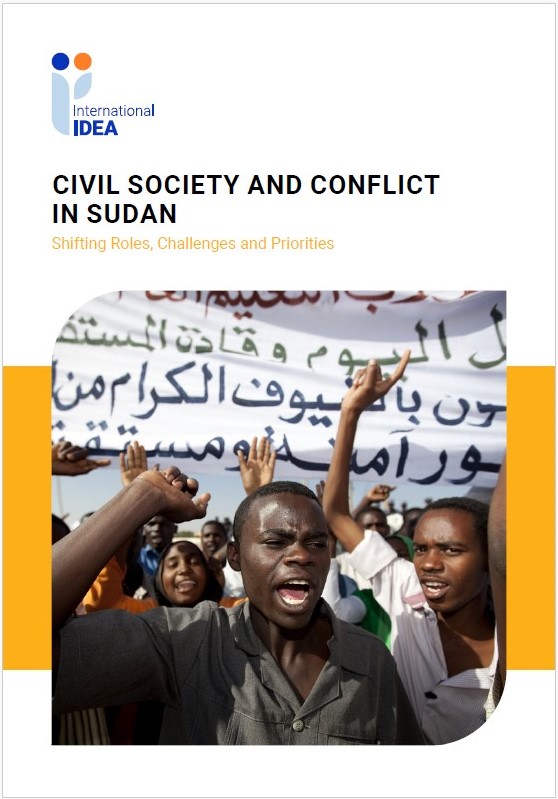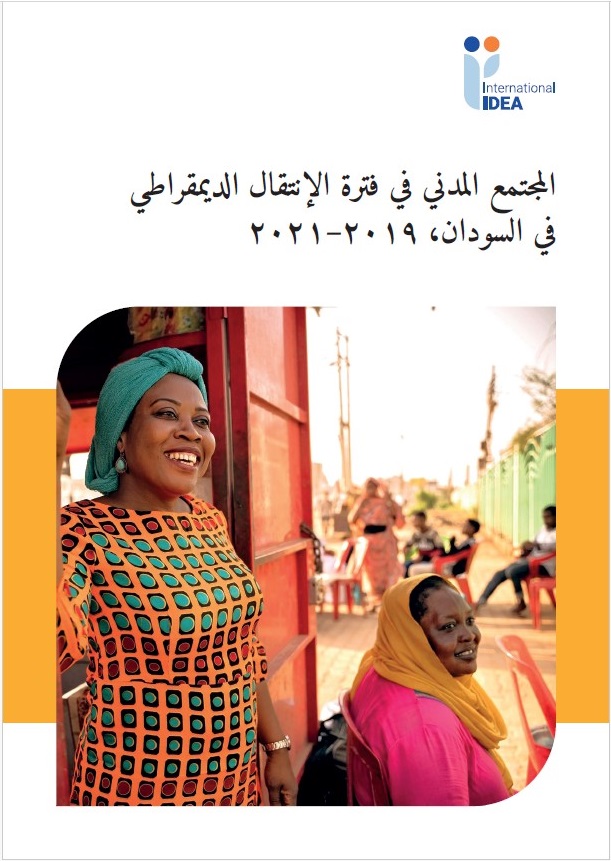Local democracy is the self-government of cities, towns, villages and districts by democratic means—typically, but not exclusively, through elected mayors, councils and other local officials.
Search
Region
Country
Type
As the date of the adoption of the post-2015 development agenda draws near, one of the heated debates in the United Nations (UN) is on how its implementation will be monitored and be made accountable.
Our thoughts at this time are with the people of Nepal, India and Bangladesh affected by the earthquake that struck northwest of Nepal’s capital, Kathmandu. The full extent of the damage and casualties is still unknown, and strong aftershocks are expected.
The Office of the Permanent Observer for International IDEA to the UN and IDEA’s Democracy and Diversity Team will host a side event on “Enhancing Political Participation of Indigenous Peoples and the Post-2015 Development Agenda” in the framework of the 14th Session of the UN Permanent Forum on Indigenous Issues. The event will take place on Monday, 20 April 2015 from 13:15 to 14:30 (EST), in New York.
April 13, 2015 | STOCKHOLM - As an important member state of International IDEA since its establishment in 1995, Chile has been actively engaged in initiatives to support democracy in Latin America and worldwide. This commitment is now further reaffirmed by Chile’s decision to host International IDEA’s Regional Office for Latin America and the Caribbean.
Introduction: Risk does encompass more than Violence
"The biggest risk is not taking any risk…. In a world that is changing really quickly, the only strategy that is guaranteed to fail is not taking risks." Through the above statement, Mark Zuckerberg precisely observes the importance of managing risks. Risks are not only inevitable but have become an essential part of modern day world.
After a frenzied period of campaigning which fed and was equally fed by fears of a possible outbreak of massive electoral violence and worse in Nigeria, the people of Africa’s most populous country and largest economy went to the polls to cast their votes in an exercise whose outcome has been historic in many senses.
When it comes to gender equality and women’s empowerment throughout the globe, one thing is certain: inaction is not an option.
The news has not been good for Latin America of late: after a “golden decade” (2002-2013) the tailwinds have dwindled. The marked economic slowdown in the region, especially in South America, and the stagnation in poverty reduction are accompanied by growing social discontent, serious corruption scandals, a sharp decline in the popularity of many presidents, and more complex conditions for governability in several countries.
Últimamente las noticias no son buenas para América Latina. Después de una “década dorada” (2002-2013), el viento de cola dejó de soplar. La marcada desaceleración económica que vive la región, sobre todo en América del Sur, y el estancamiento en la reducción de la pobreza vienen acompañados de un cuadro creciente de malestar social, graves escándalos de corrupción, un fuerte derrumbe de la popularidad de muchos presidentes y condiciones de gobernabilidad más complejas en varios paises.
The Ministries of Justice and of the Interior of Colombia, the Inter-American Development Bank and International IDEA organized the “Balance of powers: Experts’ Opinions”, forum as well as the “Balance of powers and institutional readjustment: Congress and democratic transformation” forum on 4- 6 March.
Los Ministerios de Justicia y del Interior de Colombia, el Banco Interamericano de Desarrollo e IDEA Internacional organizaron los días 4, 5 y 6 de marzos el Foro “Equilibrio de Poderes: los expertos opinan” y el Foro “Equilibrio de Poderes y Reajuste Institucional: El Congreso y la transformación democrática” con la participación del ministro del Interior Juan Fernando Cristo, el ministro de la Presidencia Néstor Humberto Martínez, el ministro de Justicia Yesid Reyes, el presidente del Congr
El pasado martes 10 de marzo, la presidenta Michelle Bachelet de Chile, creó el Consejo Asesor Presidencial contra los conflictos de interés, tráfico de influencias y corrupción respondiendo a su compromiso de tomar medidas institucionales que regulen las relaciones entre el dinero y la política, tanto en el ámbito público como en el de los negocios.
On 10 March 2015, Chile’s President Michelle Bachelet created the Presidential Advisory Council against conflict of interests, influence peddling, and corruption. This recent development is very much in keeping with her commitment in taking institutional measures to regulate the relationship between money and politics in both the political and businesses spheres.
El estado de ánimo de América Latina está cambiando. En sólo tres años la región pasó de la euforia por su futuro económico a un optimismo mucho más moderado e incluso cauto. Este nuevo escenario abre una serie de interrogantes para América Latina: ¿Cómo puede reactivar su crecimiento a pesar de la baja estructural de los precios de los commodities? Dada la menor expansión económica, ¿podrá la región sostener, e incluso profundizar, los avances sociales conquistados en los últimos años?
Latin America’s frame of mind is changing. In only three years the region has passed from a state of euphoria about its economic future to a much more moderate optimism and even caution. This new scenario presents a series of questions for Latin America concerning how it can reactivate its growth despite the structural drop in prices of commodities. Given lower economic expansion, can the region deepen, or even sustain, the social progress achieved in the last years?
The elections of 12 October 2014, have reconfigured the conformation of the Bolivian parliament, in which women reached 51 per cent representation in the Legislative Assembly, placing the country in the second place worldwide in the scope of parity, preceded only by Rwanda with 64 per cent and followed by Andorra with 50.0 per cent, Cuba with 49 per cent and Seychelles with 44 per cent.
The International Institute for Democracy and Electoral Assistance (IDEA) is pleased to join you in the commemoration of the International Women's Day.
As International Women’s Day comes around once again – what milestones and achievements in terms of women in politics can we celebrate from 2014?


